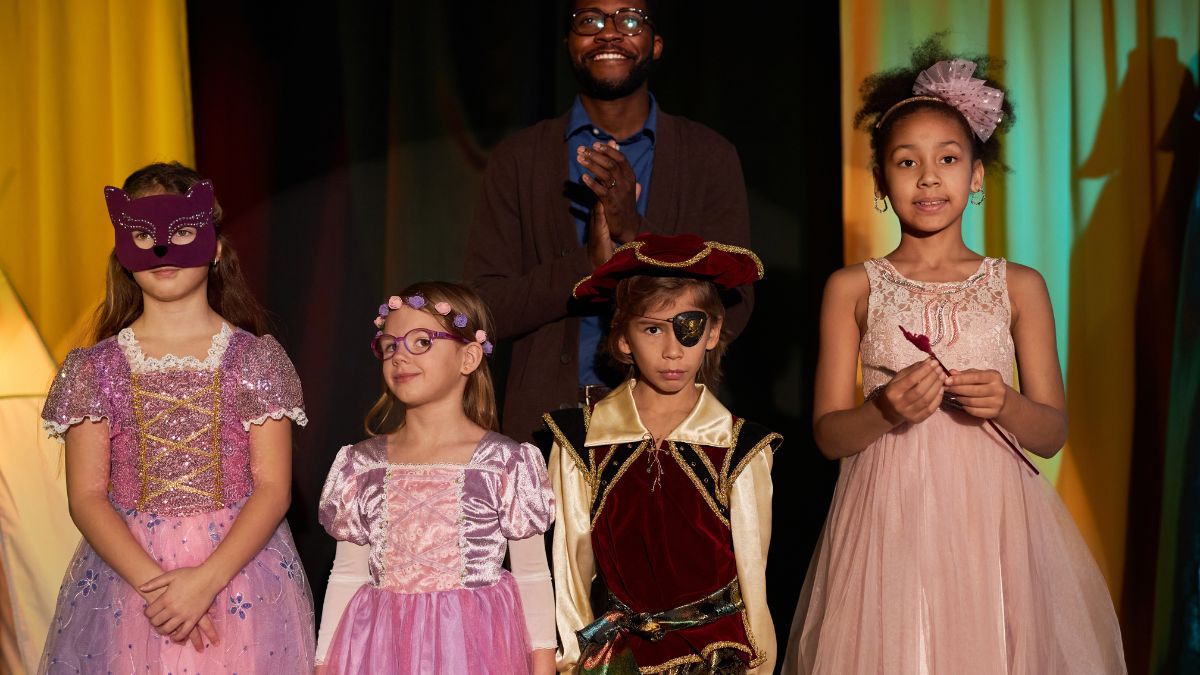Role-playing serves as an effective method for enhancing social skills in children with autism. This approach allows children to practice and refine their interactions in a safe and supportive environment.
Psychologists often utilize social scripts as a foundational tool in autism therapy. Social scripts involve creating specific sentences or phrases that children can use in various social situations. This technique helps children understand how to initiate conversations, respond to questions, and engage with peers.
The process typically includes the following steps:
- Tailored sentences are developed based on common social scenarios.
- Children practice these scripts with adults or peers, simulating real-life interactions.
- After practicing, feedback is provided to highlight what worked well and areas for improvement.
Can Role-Playing Improve Social Skills in Autistic Kids?
Yes, role-playing can improve social skills in autistic kids. Through structured, guided role-play activities, children can practice real-life social interactions in a safe and supportive environment.
These exercises help them understand social cues, take turns in conversations, and express their thoughts more clearly.
Role-playing scenarios like greeting a friend, asking for help, or joining a group activity allow autistic children to develop communication strategies and confidence. When facilitated by a therapist, teacher, or caregiver who can offer gentle feedback and reinforcement, role-playing becomes a powerful tool for building social awareness.
Additionally, role-play encourages flexibility in thinking and behavior, which is often a challenge for autistic individuals. It helps children anticipate different outcomes in social situations and learn how to adapt their responses.
Over time, with consistent practice, autistic kids may become more comfortable navigating social settings such as school, playdates, or family gatherings.

Advantages of Role-Playing
Role-playing serves as a valuable tool in enhancing social skills for children with autism. It offers unique advantages that can significantly contribute to their social development.
One of the primary benefits of role-playing is its flexibility in simulating various social situations.
Social scripts can act as a starting point for children with autism to enter social scenarios. As they become more comfortable, these social scripts can be expanded upon, allowing for the incorporation of new elements and adaptations based on different contexts. This adaptability helps children practice and prepare for real-life interactions.
Another significant advantage of role-playing is the opportunity for feedback and improvement. During role-playing exercises, specific skills such as initiating conversations can be practiced in various scenarios. After each session, feedback is provided to the child regarding their performance.
This constructive criticism helps them understand what they did well and where they can improve, fostering a growth mindset.
Role-playing not only allows children to practice social skills in a safe environment but also encourages them to reflect on their experiences. This combination of flexibility and feedback makes role-playing an effective method for improving social skills in autistic kids. If you’re interested in learning more about how targeted strategies like this help, check out our article, 5 Skills ABA Therapy Teaches Children with Autism.
2 Benefits of Role-Playing Games
Role-playing games (RPGs) offer unique advantages for children with autism, particularly in enhancing their social skills. Two significant benefits include the creation of shared mythology and the promotion of acceptance among peers.
Shared Mythology
Role-playing games provide a shared mythology that allows participants to engage in a collective narrative. Within this framework, the emotional and behavioral challenges associated with autism spectrum conditions are reinterpreted as sources of power and strength.
This approach motivates acceptance rather than exclusion, creating an inclusive environment where all players can thrive.
The community formed through these games values characteristics often associated with autism, fostering a sense of belonging among participants. This shared experience can help children with autism feel more connected to their peers, reducing feelings of isolation and promoting social interaction.
Fostering Acceptance
The structured social practices inherent in role-playing games, such as character design sheets and genre-specific interactions, create a supportive environment for youth on the autism spectrum.
These practices help establish a sociocultural ecology that promotes successful social coordination.
The narratives within RPGs often focus on internal conflicts of darkness and light, allowing players to explore their emotions in a safe space. This exploration can lead to greater self-acceptance and understanding, as players learn to navigate their feelings and behaviors in a constructive manner. By fostering acceptance, role-playing games can help reduce stigma and encourage positive interactions among peers.
Through these benefits, role-playing games can significantly contribute to the development of social skills in children with autism, making them a valuable tool for parents and caregivers seeking to enhance their child’s social experiences.
Role-Playing in Summer Camps
Role-playing activities in summer camps can significantly enhance social skills for children on the autism spectrum. These structured environments provide opportunities for social coordination and engagement, allowing participants to practice and develop their social abilities in a supportive setting.
Role-playing games at summer camps are designed to meet the specific needs of youth with autism. The structured practices and narratives create a framework that facilitates social coordination among participants.
This organization helps children understand social cues and interactions in a safe environment.
These elements work together to create an environment where children can practice social skills, such as taking turns, sharing, and communicating effectively.
Moreover, summer camps that incorporate role-playing offer numerous opportunities for social engagement. Participants can interact with peers in a structured yet flexible setting, allowing them to explore different social scenarios and practice their skills.
These opportunities not only help improve social skills but also foster a sense of community and belonging among participants. By engaging in role-playing activities, children with autism can build friendships and develop essential social competencies in a supportive environment.

Conclusion
For children with autism, role-playing opens the door to learning how to connect, communicate, and feel confident in social settings. Whether through structured scripts, imaginative games, or camp activities, role-play helps turn practice into progress.
And with each new scenario, autistic kids get one step closer to building the meaningful relationships they deserve. At Golden Care Therapy, we take pride in offering high-quality, personalized ABA therapy in New York, New Jersey, Indiana, Georgia, and Florida.
Ready to see the difference our team can make? Contact us today to learn more about how we can support your child’s journey.
Sources:



